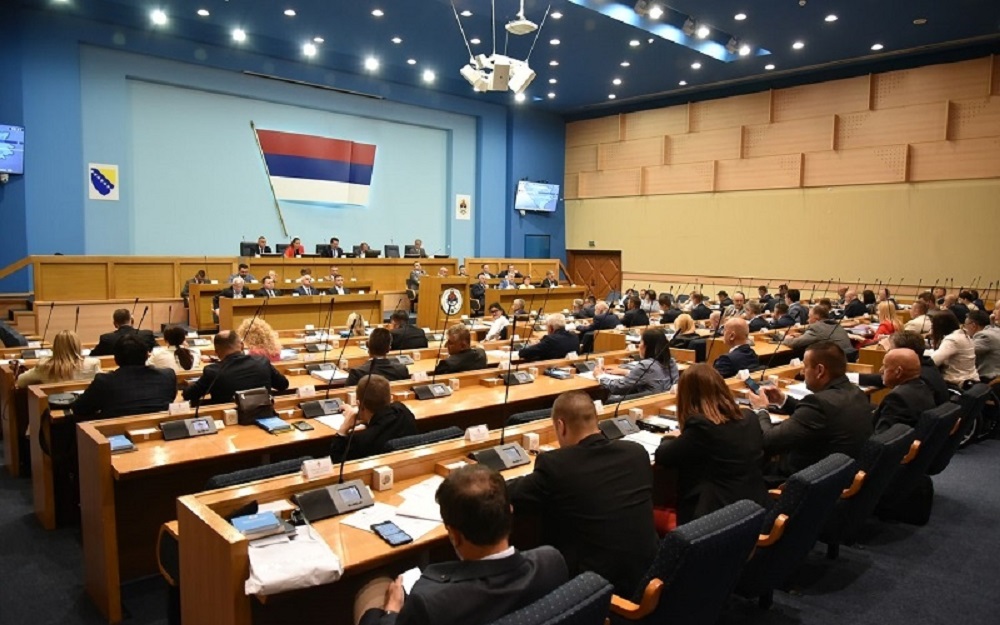Despite locally and internationally expressed concerns for the future of media freedom in the entity, the Bosnian Serb assembly on Thursday adopted law changes criminalising defamation.
The National Assembly of Bosnia’s Serb-dominated Republika Srpska entity, one of two in Bosnia, adopted amendments to the criminal code making defamation a criminal act.
The much-criticised amendments, which were pushed by the President of the entity, Milorad Dodik, were supported with 47 votes out of 63 present members of the assembly.
With the new changes, defamation will become a criminal act punishable with up to 3,000 Bosnian marks, or some 1,500 euros.
“We have listened to the inputs from media workers and citizens during the public consultations,” Justice Minister Milos Bukejlovic said before the vote on Thursday.
The Bosnian branch of the international watchdog organisation, Transparency International, said that the adoption of the amendments marked the start of the government’s “overt repression against their citizens, establishing themselves among the most authoritarian regimes in the region”.
The draft version of the law, adopted two months ago, predicted higher fines of 5,000 to 20,000 Bosnian marks, equal to 2,550-10,220 euros, a huge sum in a country where the average monthly wage is roughly 630 euros.
Moreover, these fines would rise to 10,000 to 50,000 marks [5,100-25,500] if the act is committed “through print, radio, television or other means of public information, at a public gathering or in another way”, the minister said, after the government presented the amendments on March 2.
According to Bukejlovic, insult will not be criminalised as originally planned, but will stay in the domain of civilian procedures.
Local and international media organisations have crticicised the amendments as potentially damaging to free speech, especially when considered alongside other regulations. Ahead of the discussion on the changes on Tuesday, they held a protest together with opposition parties in Banja Luka, Republika Srpska’s administrative centre.
Dodik has denied trying to muzzle the media with the law. “It is directed against those who misuse the public space and modern information space through anonymous and other means, and we will try to establish accountability for this,” he said in March.
Notably, Bosnia and Herzegovina took the lead among countries in the region in decriminalising defamation. In July 2001, Republika Srpska passed a Law on Protection against Defamation, effectively moving defamation cases from the realm of criminal law to civil law.
Source : Balkan Insight


